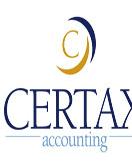A sole trader is known as a person who is the main owner of the business. They an entitled to keep all of the profits because it is their business after all of the tax has been paid. But with being the only one in charge the would be the ones who are responsible for the loses that the business could make.
Becoming a sole trader is one of the most popular option and that 3 quarters of all British business are sole traders. And if you want to become a sole trader then it is really easy to register as one. You will need to phone the HMRC helpline for the newly self-employed. You will be asked the normal questions like your full name, date of birth, your address, telephone number, national insurance number, business starting date, the business name and what type of business and whether you are a sole trader or working with a partner. You can also register online or completing the HMRC form.
You would need to make sure that you do register as self-employed or otherwise you would soon enough get a fine. You must register within 3 months of starting your business or otherwise your business could risk you a £100 fine. To stop that happening you should register straight away.
Being a sole trader can cause you some financial risks and the only one to be for blame is yourself. You should set yourself up a limited business as if you can’t control the company’s finances and get into debt then they can only take your assets of the business away from you, nothing else.
Its better being a sold trader as it is cheaper than being a limited company. It requires more administrative effort when it comes to tax whereas reregistering as a sold trader costs nothing.
If you think that being a sole trader means being on your own then you’re wrong. You can still employ people to work for you. If you do decide to employ people then you must collect National Insurance and Income tax from them to pay towards HMRC. If you do this then you will need to start up payroll.
As all businesses should do is that you would need to keep detailed financial records of your sales and expenses. You should keep all receipts and invoices/bills. This will help you to fill in you tax returns.

